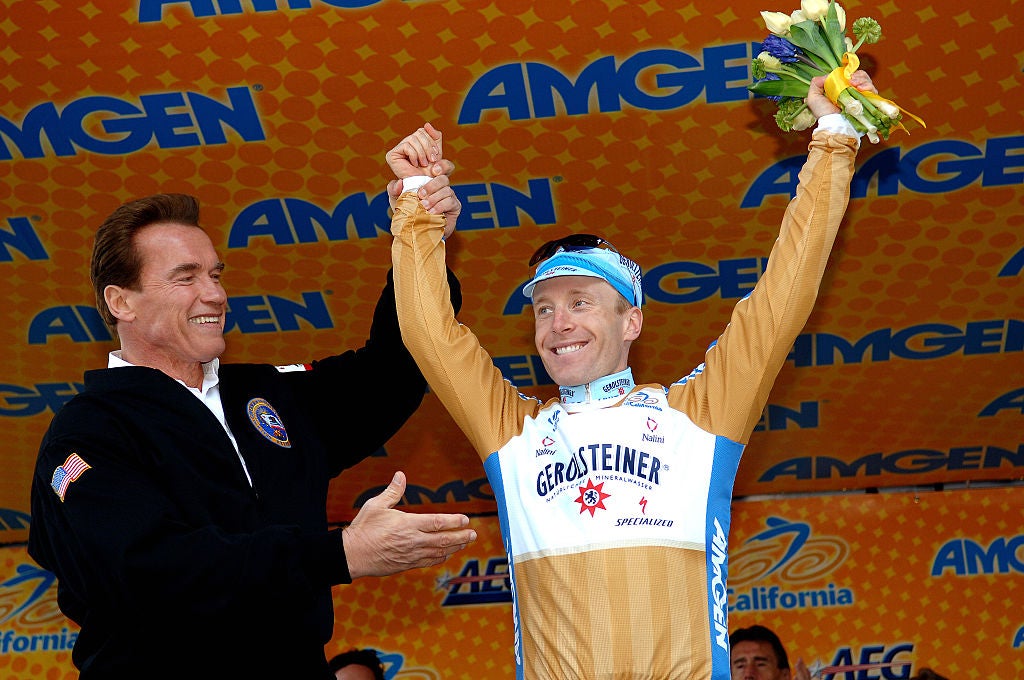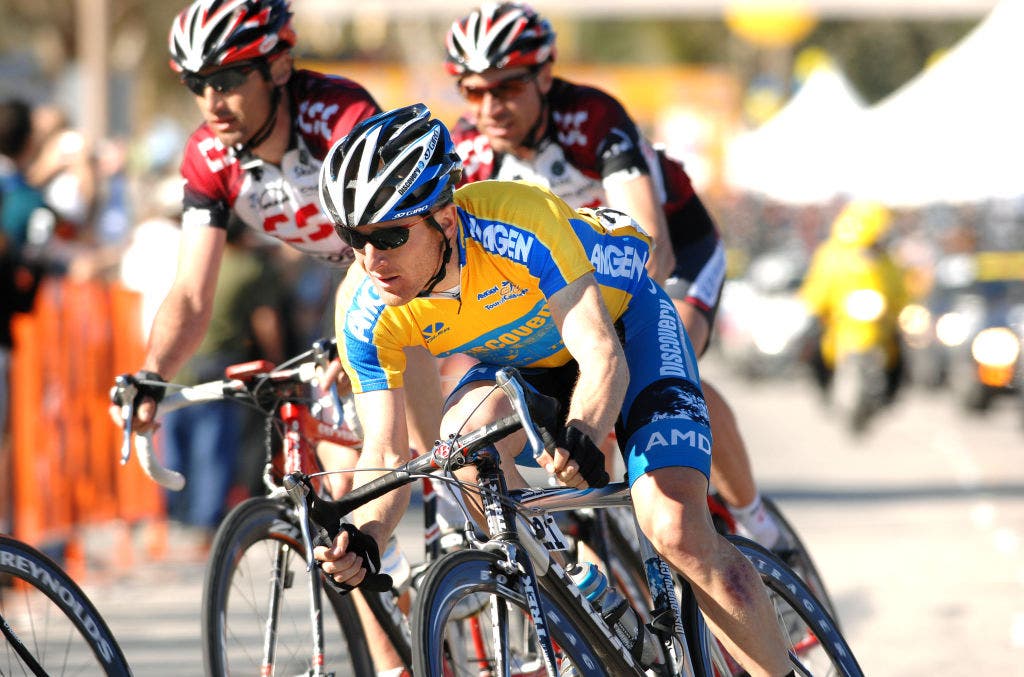Leipheimer on the Amgen Tour of California: "I owe a lot to that race"

Photo: Tim de Waele/Corbis via Getty Images
Levi Leipheimer’s international results are some of the best ever by an American racer. During his 16-year pro career, Leipheimer won the Tour de Suisse, two stages of the Vuelta a España, Spain’s Vuelta a Castilla y Leon, among other events.
Yet it was his three overall wins at the Amgen Tour of California had the greatest impact on his career, as well as his life after cycling.
“It wasn’t the biggest race that I ever won, but I think as a whole, it had the biggest impact on my career, and who I am, and what I’m known for,” Leipheimer told VeloNews.“I had the opportunity to really take advantage of the opportunity, and make the most of it.”
Leipeheimer won the Amgen Tour of California’s overall from 2007-2009; he finished third in 2010 and second in 2011. Along the way he took six stage wins, including the first ever day of racing in the race’s history: the prologue time trial in 2006.
Like other American pro riders, Leipheimer lamented the news of the Tour of California’s 2020 cancellation. Race owner Anschutz Entertainment Group revealed that the event’s challenging economics forced it to take a hiatus for next year.
“I’m sad to see it go, and I feel so fortunate to have lived and peaked while it was there,” Leipheimer said.
In 2012 Leipheimer retired after participating in the U.S. Anti-Doping Agency’s investigation into doping in cycling, and accepted a six-month ban and a loss of results from 1999-2006.

Like other U.S. pros who raced in the mid 2000’s, Leipheimer emphasized the seismic impact the event had on the U.S. professional cycling scene upon its launch in 2006. When Leipheimer learned that a statewide tour was being planned, he was overjoyed.
“The email came through and I had to do a double-take and re-read it,” Leipheimer said. “[The race] was something I had dreamed about beforehand, and it seemed almost too good to be true.”
The race’s February date forced Leipheimer to make a major adjustment to his yearly training schedule. Rather than pedal easy base miles in the winter, Leipheimer committed himself to weeks of intense training in Sonoma County. He even skipped one of his team’s two training camps in order to put in harder miles at home, he said.
After the race, Leipheimer then forced himself to rest for several weeks before starting his European campaign.
“I just buckled down and pushed myself beyond what I thought I could do,” Leipheimer said. “And after the race there was always this big letdown, both physical and mental. You’re in this hole, and it’s daunting, because it’s only February and I have Paris-Nice in a few weeks.”
Leipheimer’s three victories were the product of his blazing speed in the individual time trial, as well as his strength on California’s steep climbs. In 2007 he led the race from wire to wire; in 2008 and 2009 he held off challenges from Garmin teammates David Millar and David Zabriskie.
Yet Leipheimer said his best memory from the race comes from the inaugural edition, which he eventually lost to Floyd Landis. During the race’s first road stage, the peloton sped into Santa Rose, then his hometown, and completed several laps around the town.
The crowds and enthusiasm that greeted the peloton still stays with Leipheimer
“The size of the crowd rivaled anything you saw in Europe. There were people on top of buildings and hanging out of windows,” Leipheimer said. “For anyone in the race, it was confirmation that people really loved [the race].”
In 2009 he launched Levi’s King Ridge Gran Fondo, which has grown into one of the largest mass-participant cycling rides in the country. Leipheimer said the event’s success is tied directly to his success at the Tour of California. His Gran Fondo sends riders on a route that was often used by the Tour of California in its early editions.
“Without it, 100 percent there is no King Ridge Gran Fondo,” Leipheimer said. “I owe a lot to that race.”